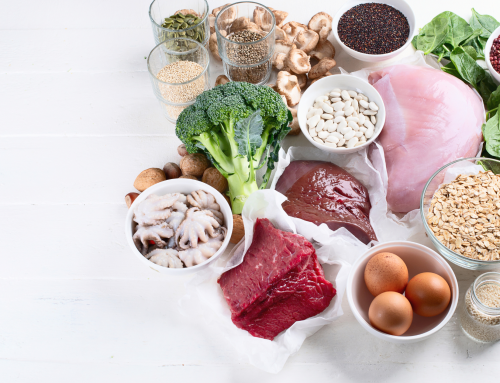What to Eat for Fertility (Without Losing Your Mind)- a clear, practical guide to eating for fertility while trying to conceive and preparing for pregnancy. There’s a lot of confusing, contradictory (and frankly incorrect) nutrition advice out there, so this is designed to be simple, realistic, and sustainable. No calorie counting apps, no weighing lettuce leaves.
This isn’t a weight-loss diet — although improved body composition can be a welcome side effect. The principles that support fertility also support long-term health. I’ve also included my top essential nutrients to consider in a prenatal, fertility, and breastfeeding supplement.
Think of this as the what, why, where from, and how much of fertility nutrition — minus the overwhelm.
Healthy babies come from healthy parents. Let’s give your baby the best start possible.
THE BASICS (without the obsession)
One of the most common questions I’m asked is: “How many calories should I be eating to improve fertility?”
The honest answer: it depends — on body composition, activity level, and energy needs. While I’m not a big fan of calorie fixation, a general guide for many women is around 1,500–2,000 calories per day.
If you feel energised, nourished, and satisfied at the lower end, that’s fine. Extremely low-calorie intakes, however, aren’t ideal for hormone balance or conception. If weight loss is needed prior to pregnancy, this is best approached strategically and short-term, with fertility firmly in mind.
BMI isn’t perfect either — but it’s commonly used. A BMI between 18–24 is generally associated with improved conception outcomes, though individual health always matters more than a number.
FOOD RULES Food Rules (Simple, Not Punitive)
Less of this: Alcohol, caffeine, soft drinks, smoking, recreational drugs, refined sugars, ultra-processed foods, artificial sweeteners.
More of this: Filtered water, colourful vegetables, fresh fruit, quality protein, healthy fats, and food that looks like it came from the earth — not a factory.
- Fertility-friendly staples:
- Eggs: 1–2 daily
- Red meat: up to 300 g weekly
- Salmon: 150–180 g, twice weekly
- Leafy greens: 5–7 cups daily
- Avocado: ½–1 daily
- Healthy oils: 2 tbsp, 1–2 times daily
- Fruit: 2 serves daily
(Yes, farmers’ markets are still a great idea.)
Macronutrients
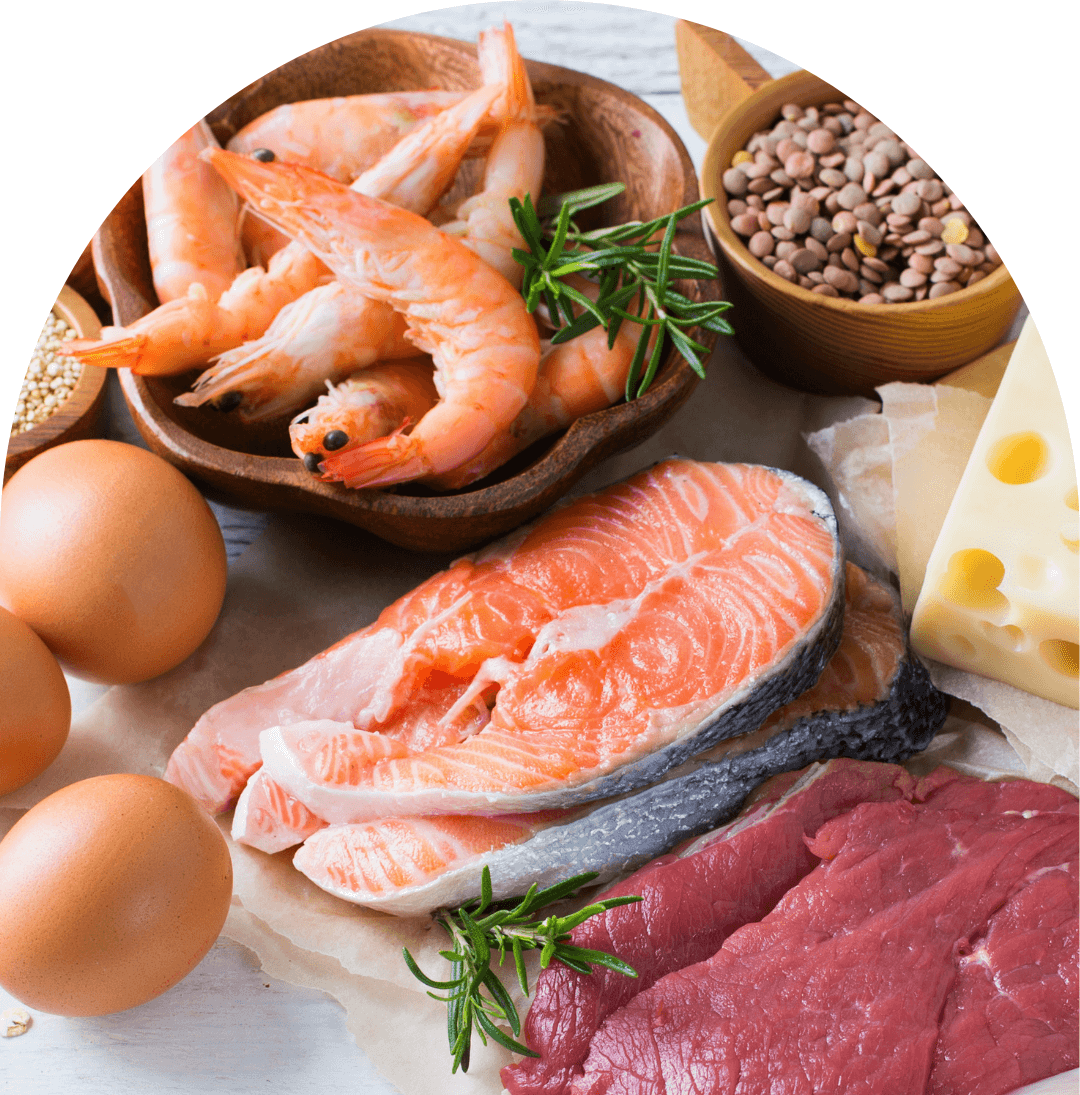
Protein
Protein matters. It supports the development and function of eggs and sperm and plays a key role in fertilisation and early embryonic development. Inadequate protein intake has been associated with poorer reproductive outcomes, highlighting its importance in preconception nutrition
Food sources: Eggs, meats, fish, nuts, grains & seeds, legumes, tempeh & miso, quinoa
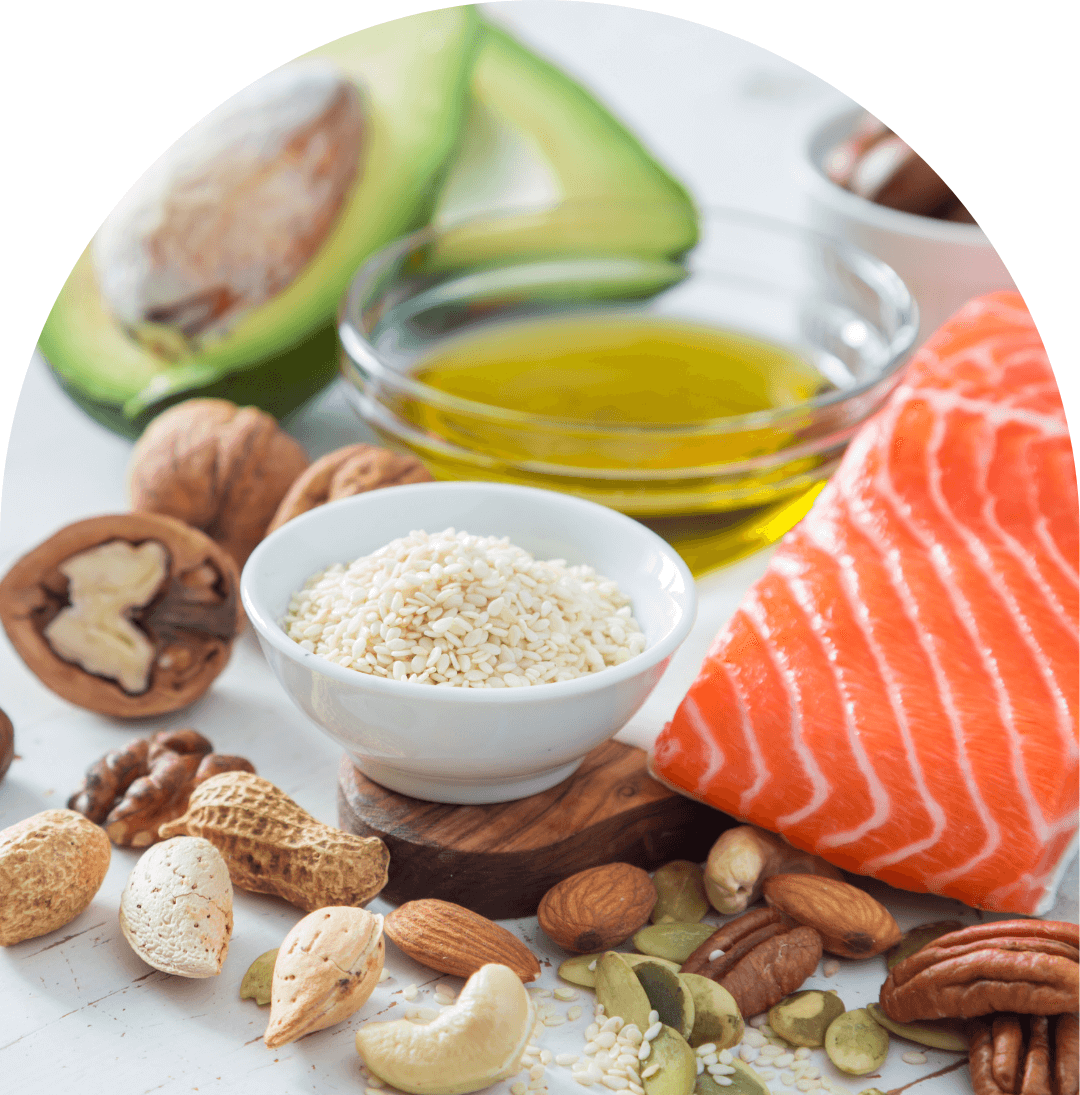
Fats
Fats are not the enemy — especially before and during pregnancy. A mix of dietary fats, including some saturated fat, supports cholesterol production, which the body uses as a building block for hormones such as oestrogen, progesterone, testosterone, and vitamin D — all important in reproductive health.
Omega-3 fats also deserve their moment. EPA and DHA play key roles in pregnancy, contributing to fetal brain, eye, and nervous system development. Adequate intake of these essential fats supports healthy pregnancy outcomes and early development
Food sources: Salmon, sardines, white bait, mackerel, herring, halibut, flaxseeds, linseeds, chia seeds, walnuts, egg yolks.
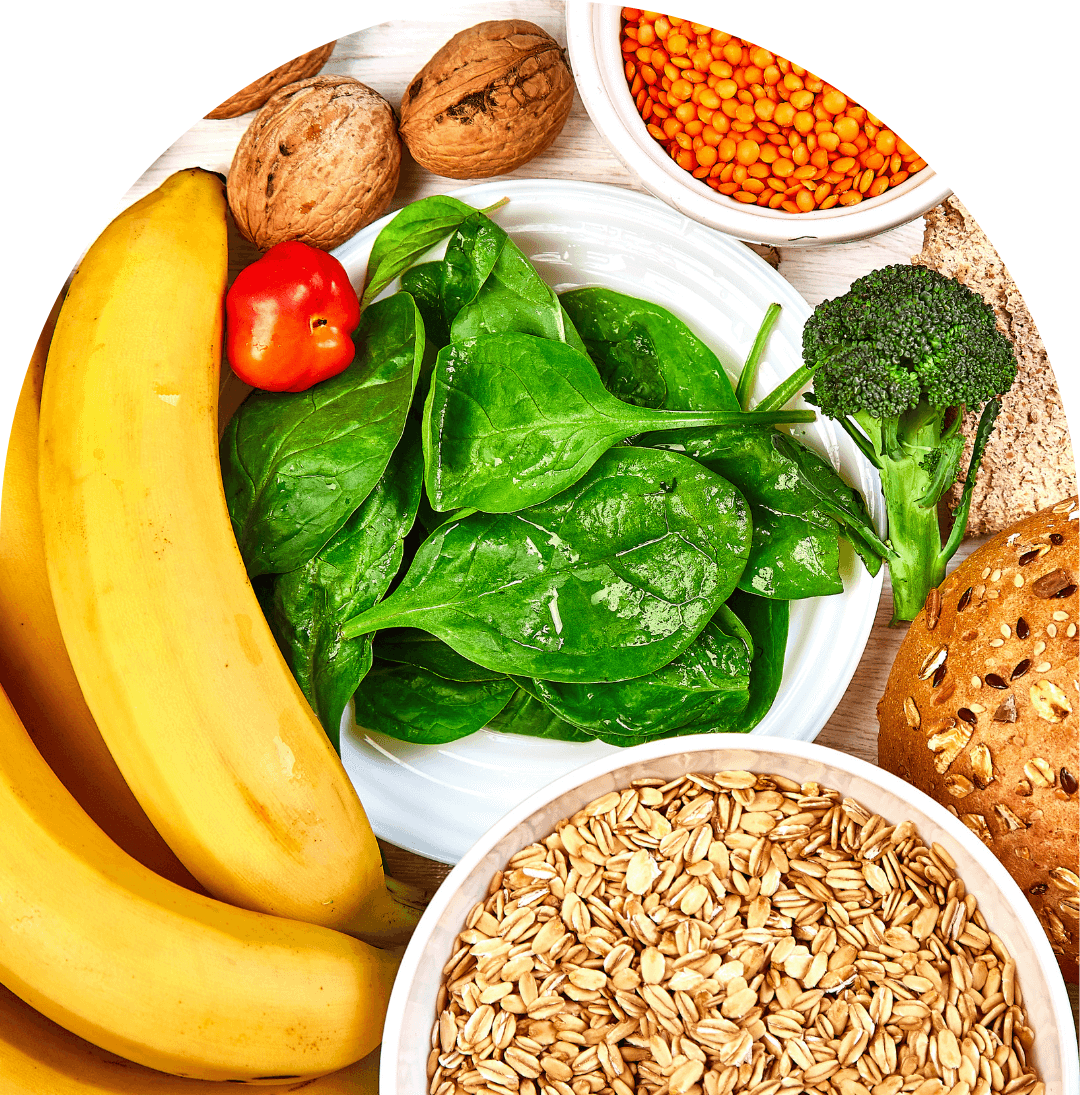
Fibre
Fibre earns its keep. It supports healthy digestion and helps the body eliminate excess hormones, including oestrogen — an often-overlooked but important part of hormone balance.
Food sources: Bran, psyllium husks, flaxseed, chia seeds, split peas, lentils, lima beans, artichokes, broccoli, brussel sprouts, blueberries, raspberries, blackberries, pears, avocados
Vitamins
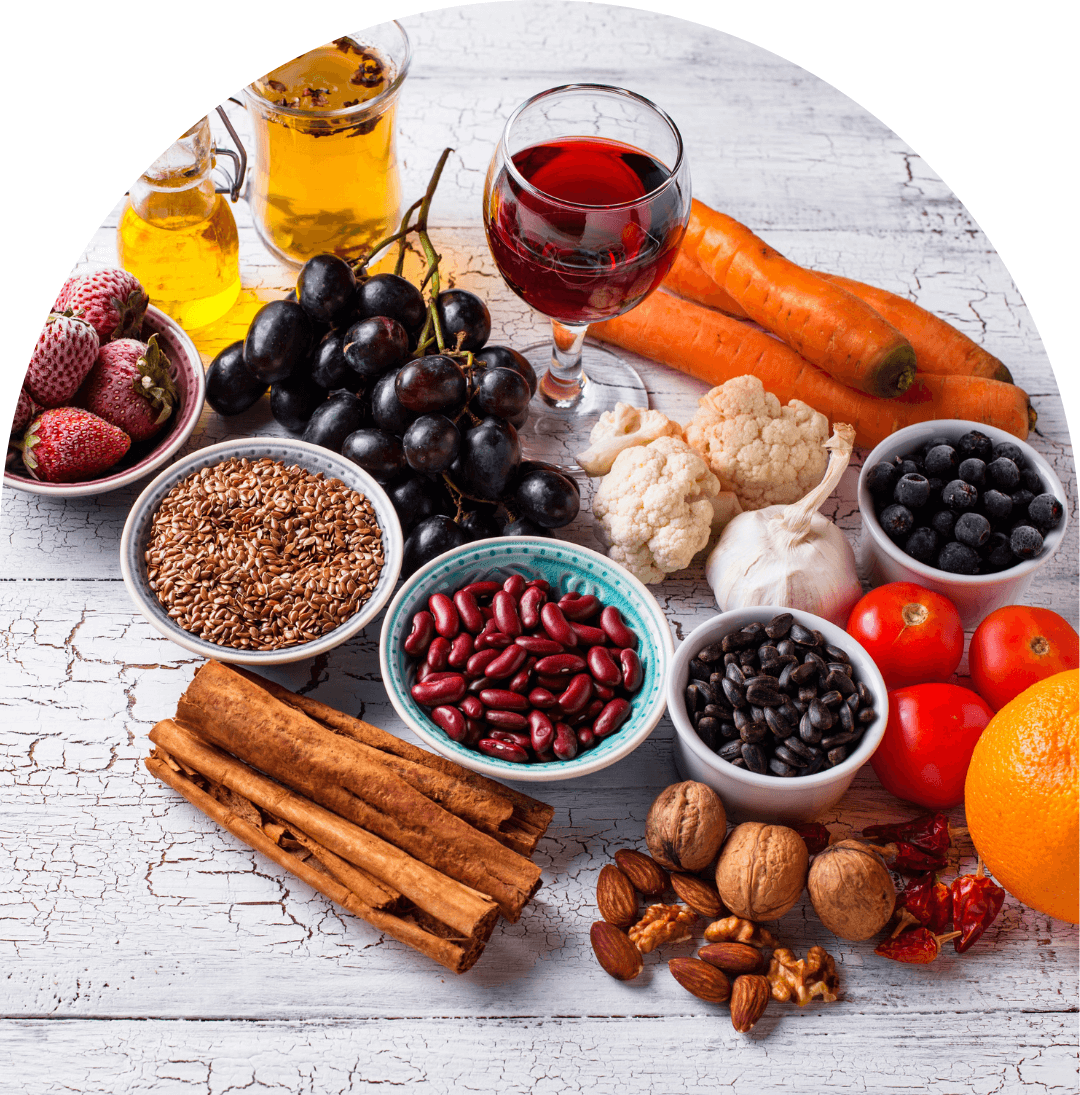
Folate
Folate (the natural form found in food) is a preconception heavyweight — for both women and men. It supports healthy egg and sperm production and plays a key role in early reproductive processes.
Together with vitamins B6 and B12, folate helps regulate homocysteine levels. Elevated homocysteine has been associated with poorer pregnancy outcomes. In early pregnancy, adequate folate supports normal cell division and tissue development and is well recognised for its role in reducing the risk of neural tube defects.
Food sources: Green leafy vegetables (spinach & baby spinach, rocket, kale, bok choy, choy sum (all Asian greens), silverbeet, broccoli, brussel sprouts, mustard and collard greens), cabbage, avocados, lentils, fruits (oranges, berries and bananas). It is also found in cereals, legumes and liver.
NB/ Not all folate supplements are the same:
There are many different types of folate supplements- folic acid, folinic acid and 5-methyltetrahydrofolate. Most of the research to date has been conducted on folic acid, and that remains valid. Individuals however may require alternative forms. As part of preconception health care screening, your enzymatic use of folate can be tested via MTHFR.
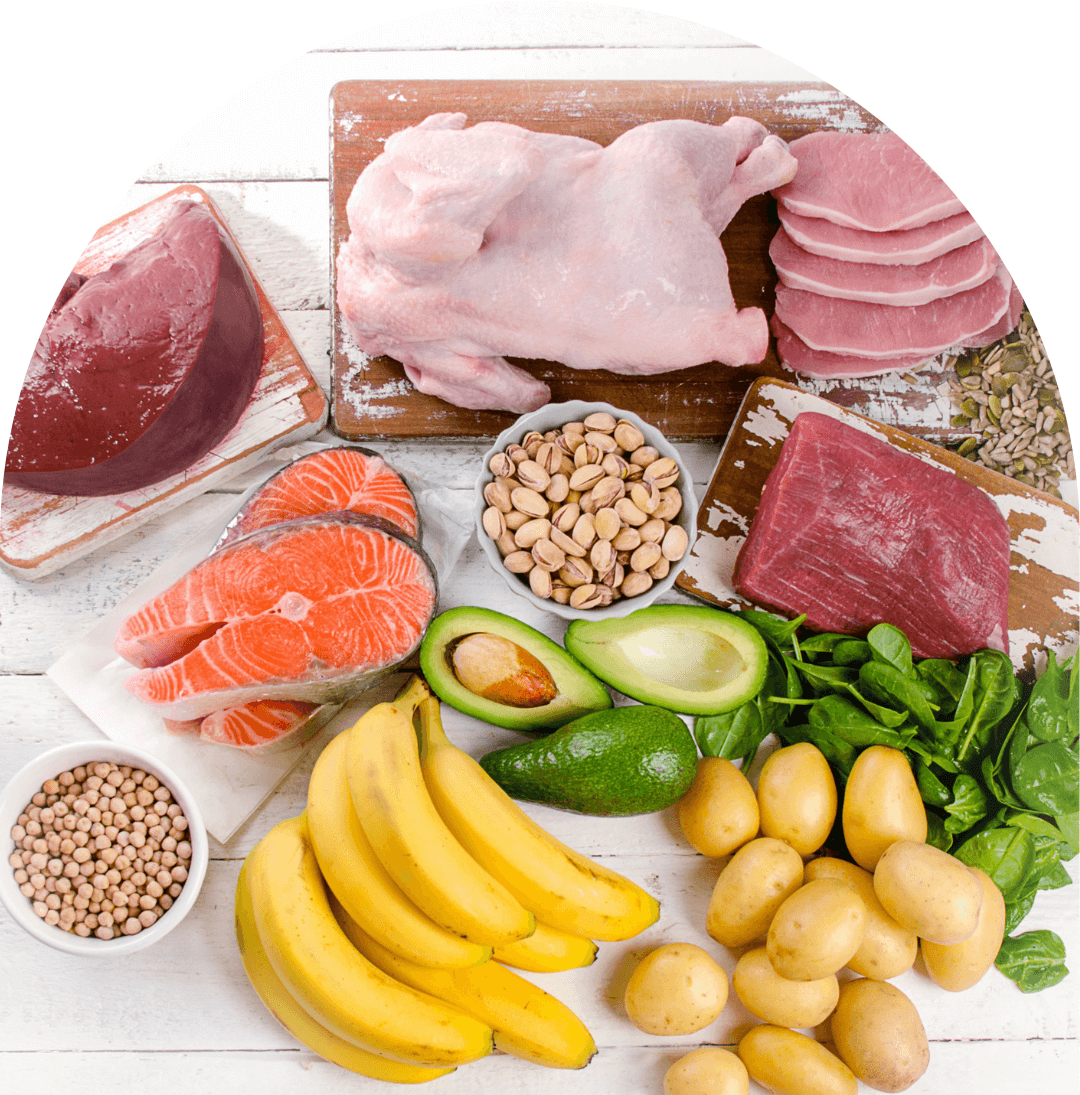
Vitamin B6
Vitamin B6 plays an important role in hormone metabolism and regulation. It supports progesterone activity, which is important for implantation and early pregnancy. Alongside folate and vitamin B12, B6 also helps keep homocysteine levels in check — elevated levels have been associated with less favourable pregnancy outcomes.
Vitamin B6 is also commonly used to support women experiencing nausea in early pregnancy and cyclical symptoms such as PMS.
Food sources: Nuts & seeds, especially sunflower seeds & pistacchio nuts, tuna*, salmon, turkey, chicken, beef, bananas, avocado, spinach, dried fruits
*Tuna is a great source of B6 however regular consumption (no more than 1/week) is not recommended in preconception care. Avoid during pregnancy.

Vitamin B12
Alongside folate and vitamin B6, vitamin B12 supports healthy homocysteine levels. Elevated homocysteine has been associated with poorer pregnancy outcomes, highlighting the importance of adequate B12 status in preconception and early pregnancy.
Food sources: Mainly animal products including beef liver, mackerel, sardines, red meat, salmon & eggs. Plant sources include fermented foods such as tempeh & miso.
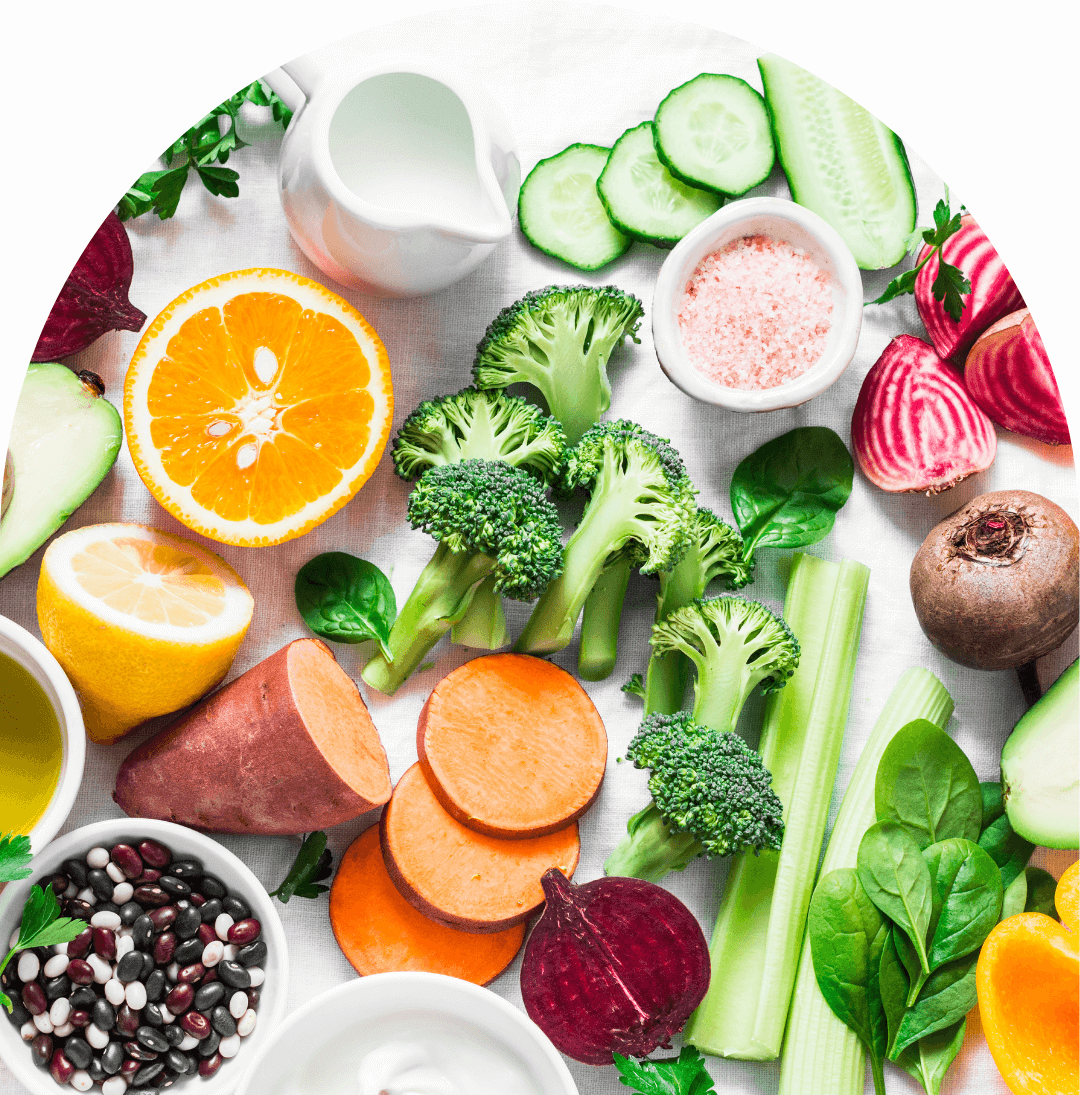
Vitamin C
Vitamin C pulls its weight in fertility. It’s concentrated in ovarian tissue and supports normal ovulation and hormone function, while its antioxidant role helps protect cells from oxidative stress.
It’s just as important for sperm. Vitamin C supports sperm quality by protecting against free-radical damage and has been associated with improved motility by helping reduce sperm clumping — a small nutrient with a big supporting role.
Food sources: Brightly coloured fruits and vegetables, especially kiwi, red capsicum, green leafy vegetables, (spinach & baby spinach, rocket, kale, bok choy, choy sum (all Asian greens), silverbeet, broccoli, brussel sprouts, mustard and collard greens), strawberries, cranberries, rosehips, citrus fruits, guava

Vitamin D
Vitamin D plays a role in hormone function, including the production of sex hormones. Despite living in the “sunshine country,” many Australians still have suboptimal vitamin D levels. Screening vitamin D status as part of preconception care can be a simple but valuable step.
Food sources: Cod-liver oil, fatty fish, eggs, dairy, sunshine!
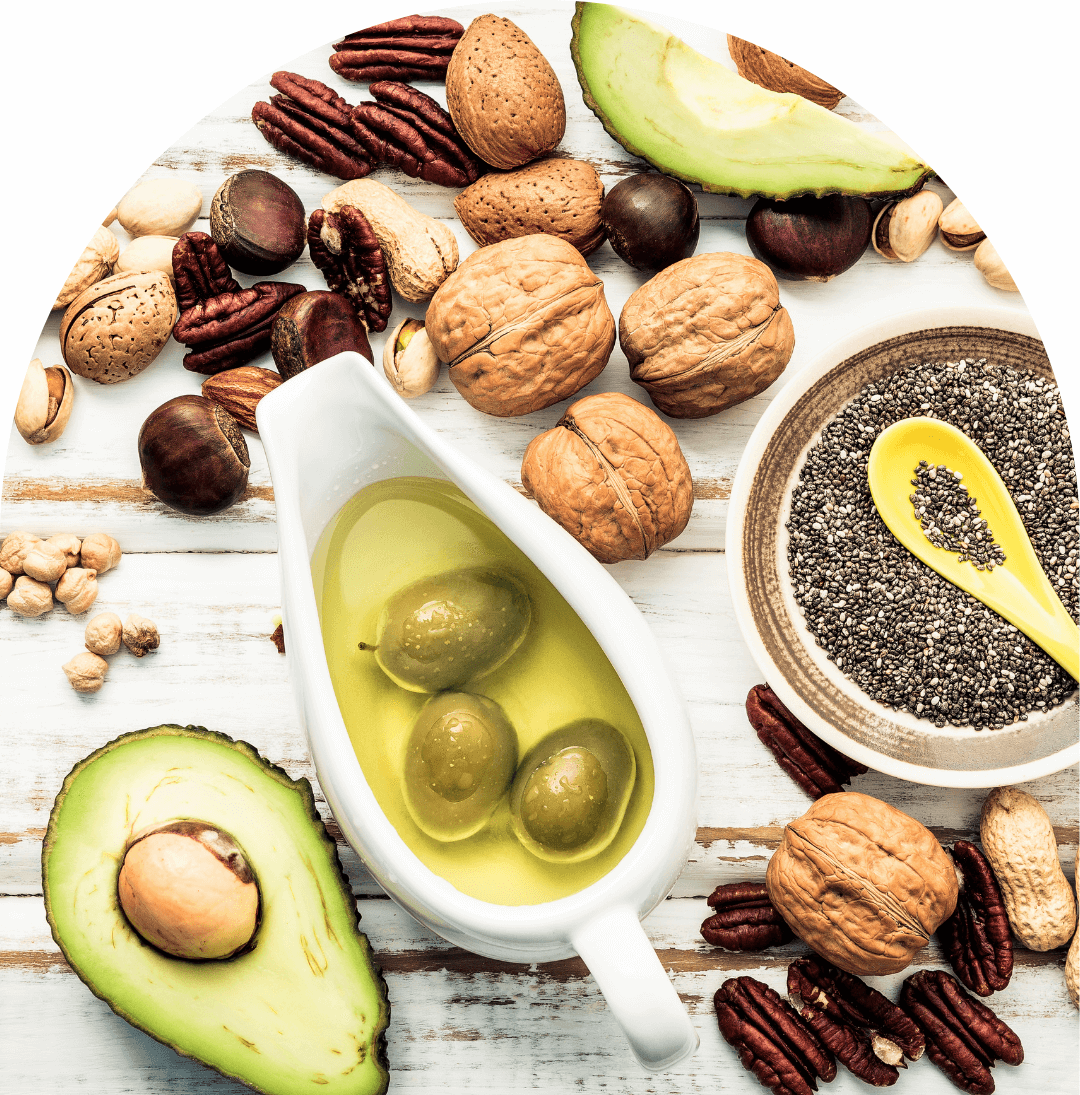
Vitamin E
Once dubbed the “fertility vitamin,” vitamin E supports reproductive health in both women and men. In women, it’s involved in maintaining a healthy uterine lining and supporting blood flow to the uterus — both important for implantation. In men, vitamin E contributes to sperm health, including motility and DNA integrity, through its antioxidant role.
In short: vitamin E helps create a healthier environment on both sides of conception.Food sources: Wheat germ, dark leafy greens (spinach & baby spinach, rocket, kale, bok choy, choy sum (all Asian greens), silverbeet, broccoli, brussel sprouts, mustard and collard greens), sunflower seeds, almonds, pumpkin, avocado & olive oil
Minerals
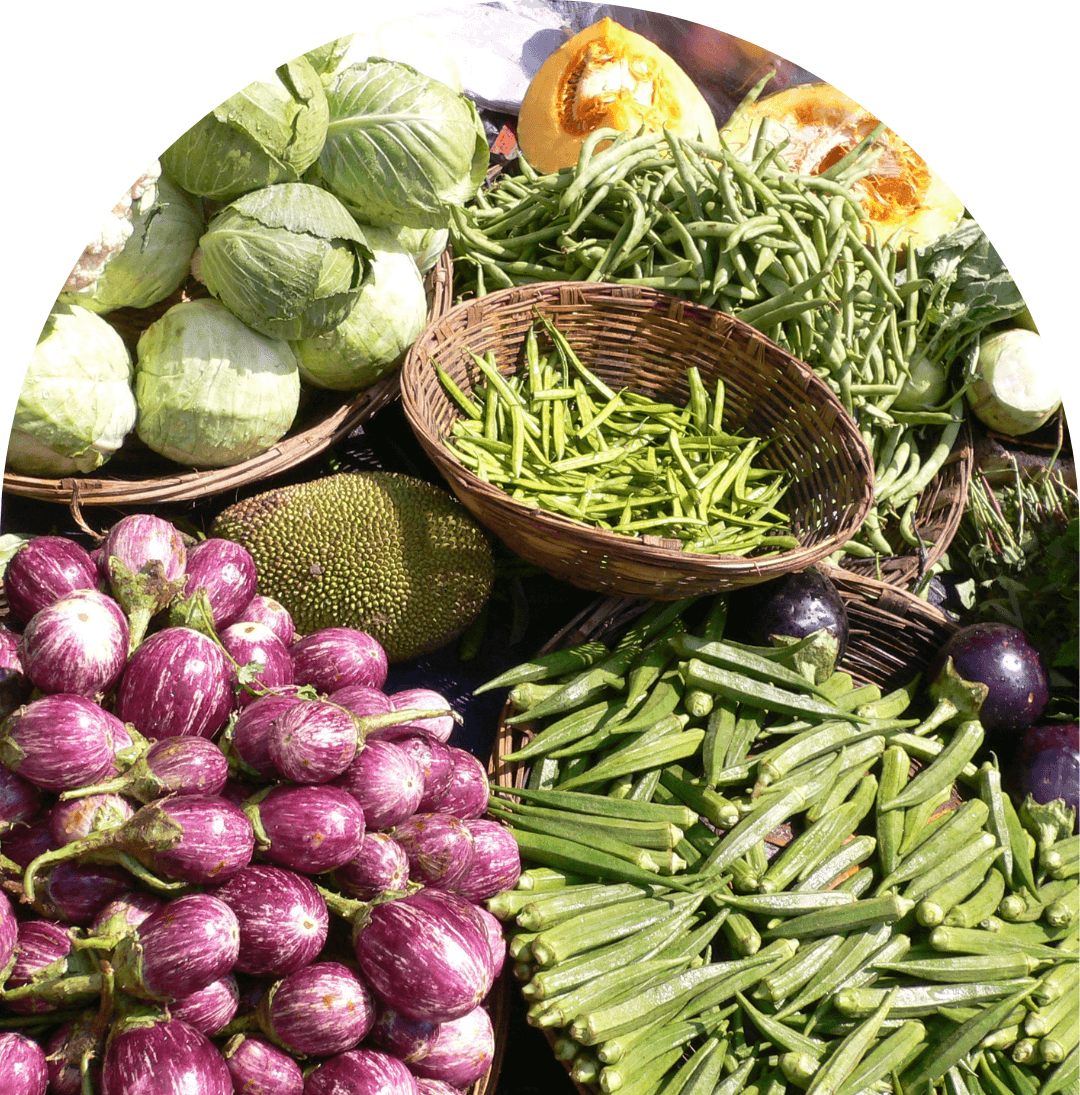
Calcium
Calcium, magnesium and vitamin D work in conjunction with oestrogen. Calcium is important for uterine tone, fertile mucous production, and the future development of babies bones.
Food sources: sesame seeds, sunflower seeds, nuts (brazil, walnuts, almonds), sardines, green leafy vegetables (spinach & baby spinach, rocket, kale, bok choy, choy sum (all Asian greens), silverbeet, broccoli, brussel sprouts, mustard and collard greens), watercress, parsley, kelp, salmon, chickpeas, amaranth, millet brown rice, nori, fish with bones.
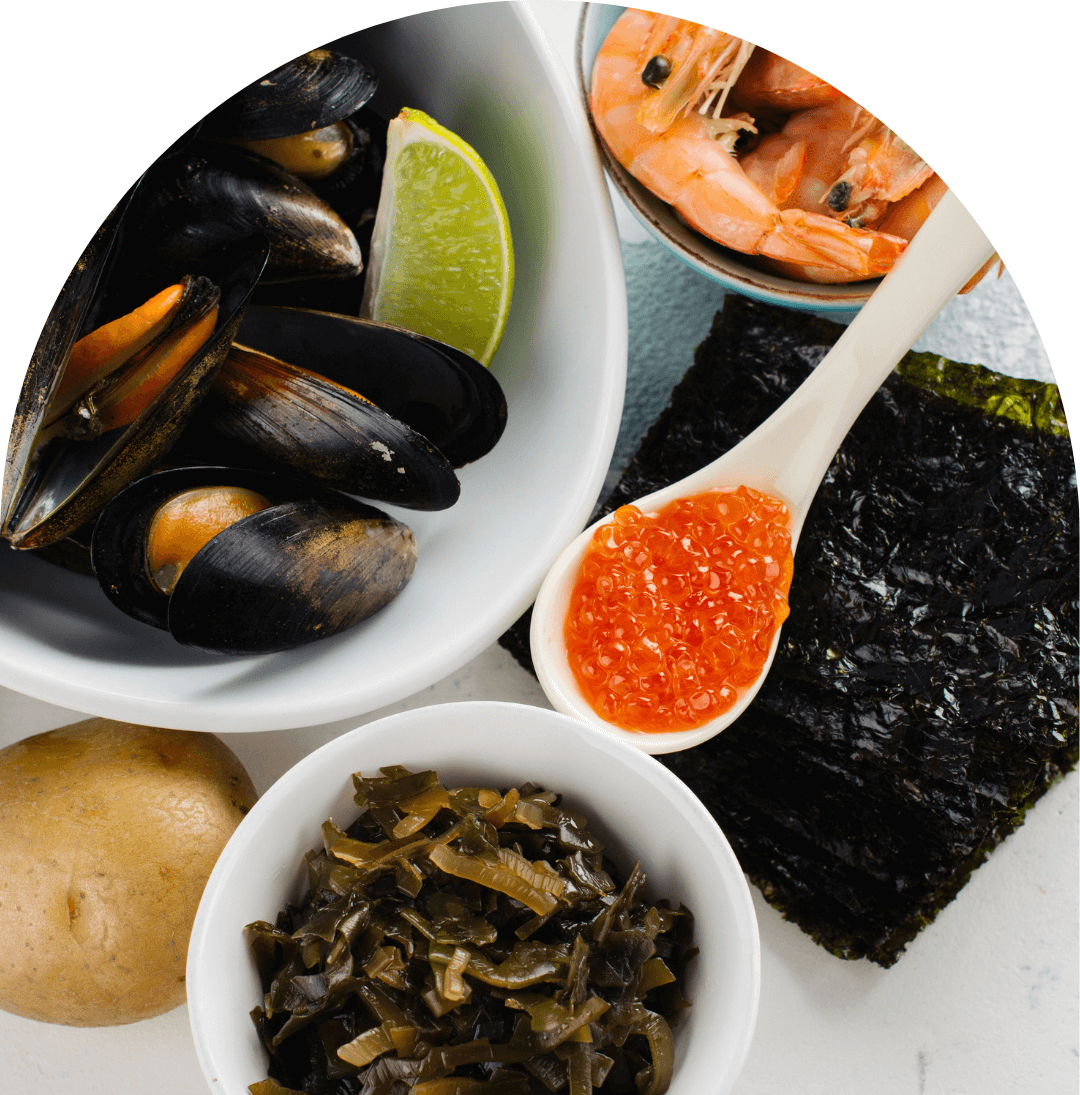
Iodine
Iodine supports healthy thyroid function, which in turn plays a role in hormone regulation and ovulation. Suboptimal thyroid activity has been associated with difficulties conceiving and higher miscarriage risk, making iodine status an important consideration in preconception care.
Food sources: Kelp, seafood & eggs
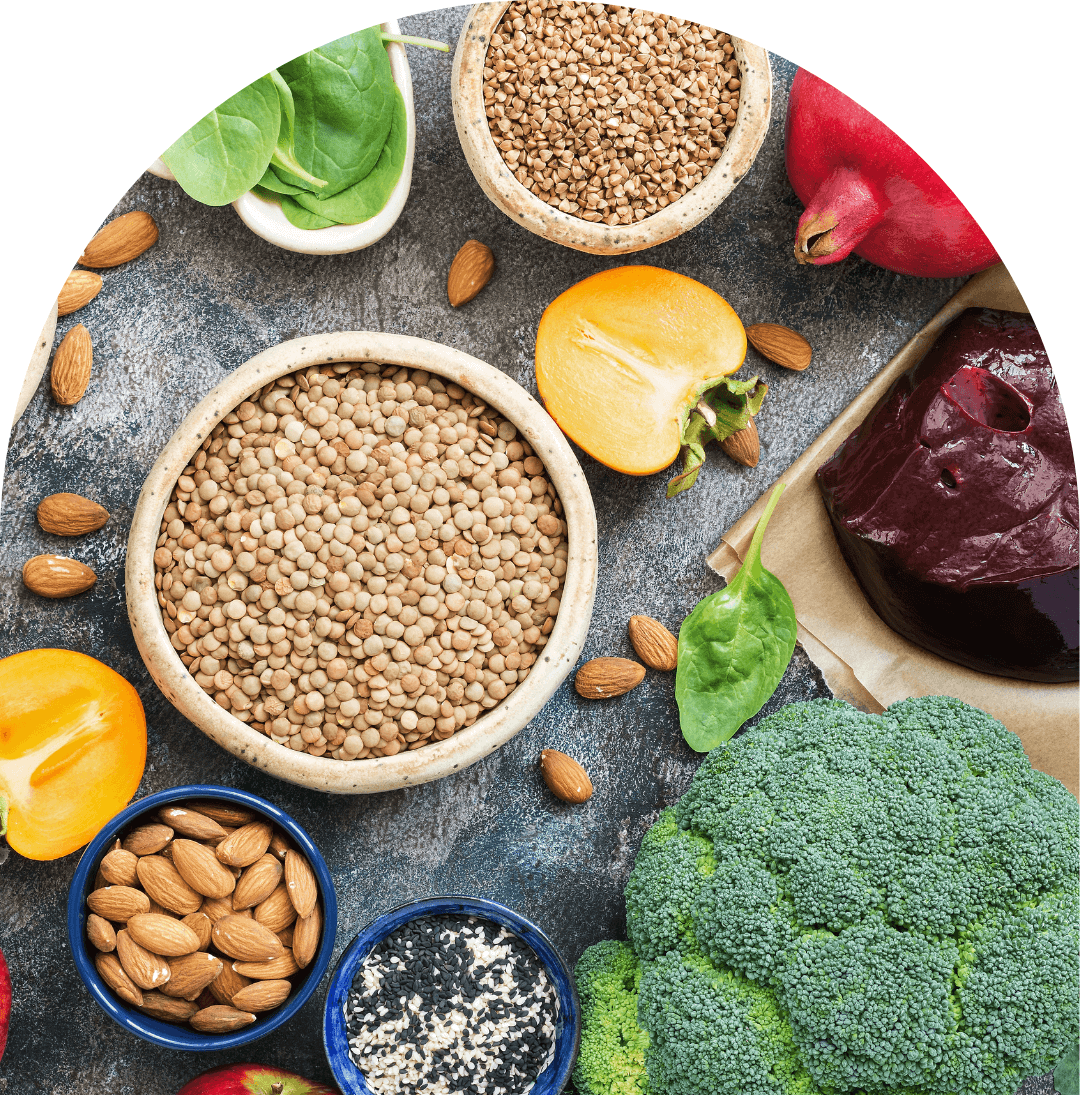
Iron
Iron matters for fertility. Low iron levels have been associated with disrupted ovulation and poorer egg quality, while adequate iron supports normal reproductive function.Food sources: Red meat, garbanzo & kidney beans, lentils, dark green leafy vegetables (spinach & baby spinach, rocket, kale, bok choy, choy sum (all Asian greens), silverbeet, broccoli, brussel sprouts, mustard and collard greens), dried fruit (raisins & apricots), sesame & pumpkin seeds, liver & brains.

Magnesium
Magnesium is essential for hormonal health, as it increases the production of oestrogen and progesterone, and Vitamin B6 utilisation.
Food sources: walnuts, nuts generally, dark green leafy vegetables vegetables (spinach & baby spinach, rocket, kale, bok choy, choy sum (all Asian greens), silverbeet, broccoli, brussel sprouts, mustard and collard greens),

Selenium
Selenium is a quiet achiever in fertility. As an antioxidant, it supports protection against oxidative stress and contributes to sperm health. Selenium is naturally present in semen and plays a role in supporting sperm count, movement, shape, and DNA integrity — all important for fertilisation.
Food sources: Brazil nuts, oysters, tuna, seeds, lean meats, chicken, oatmeal, brown rice & quinoa
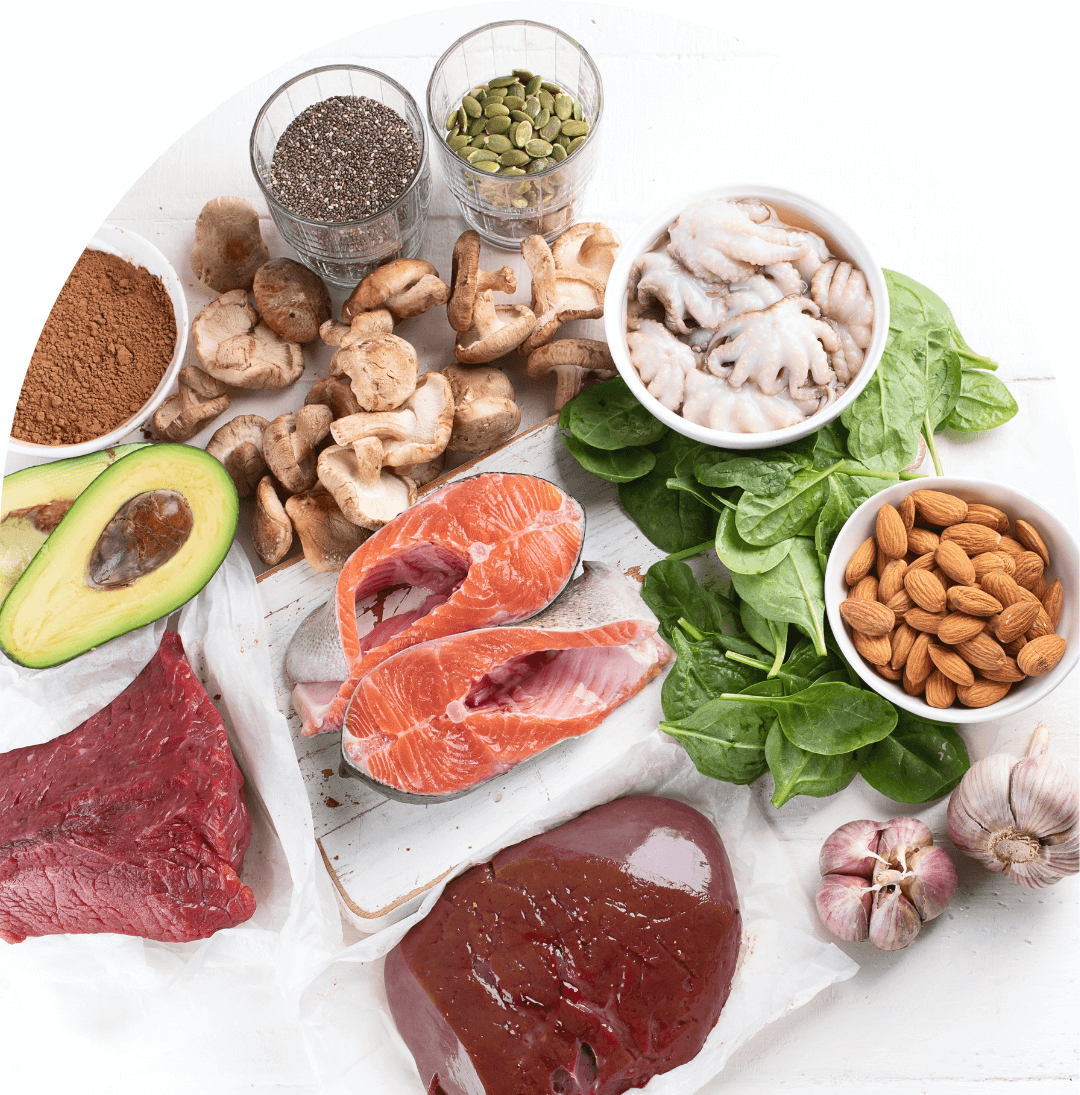
Zinc
Zinc is a fertility heavyweight for both women and men. In women, it supports hormone balance and healthy egg development. In men, zinc plays a key role in sperm health — including count, movement, shape, and DNA integrity — and is naturally present in semen.
Low zinc status has been associated with reduced testosterone levels and poorer semen parameters. Because sperm development takes time, zinc intake is best considered well before conception attempts.
Food sources: Food sources: Oysters, shellfish, seafood, beef, lamb, pumpkin seeds, sesame seeds & cashews
Phytonutrients
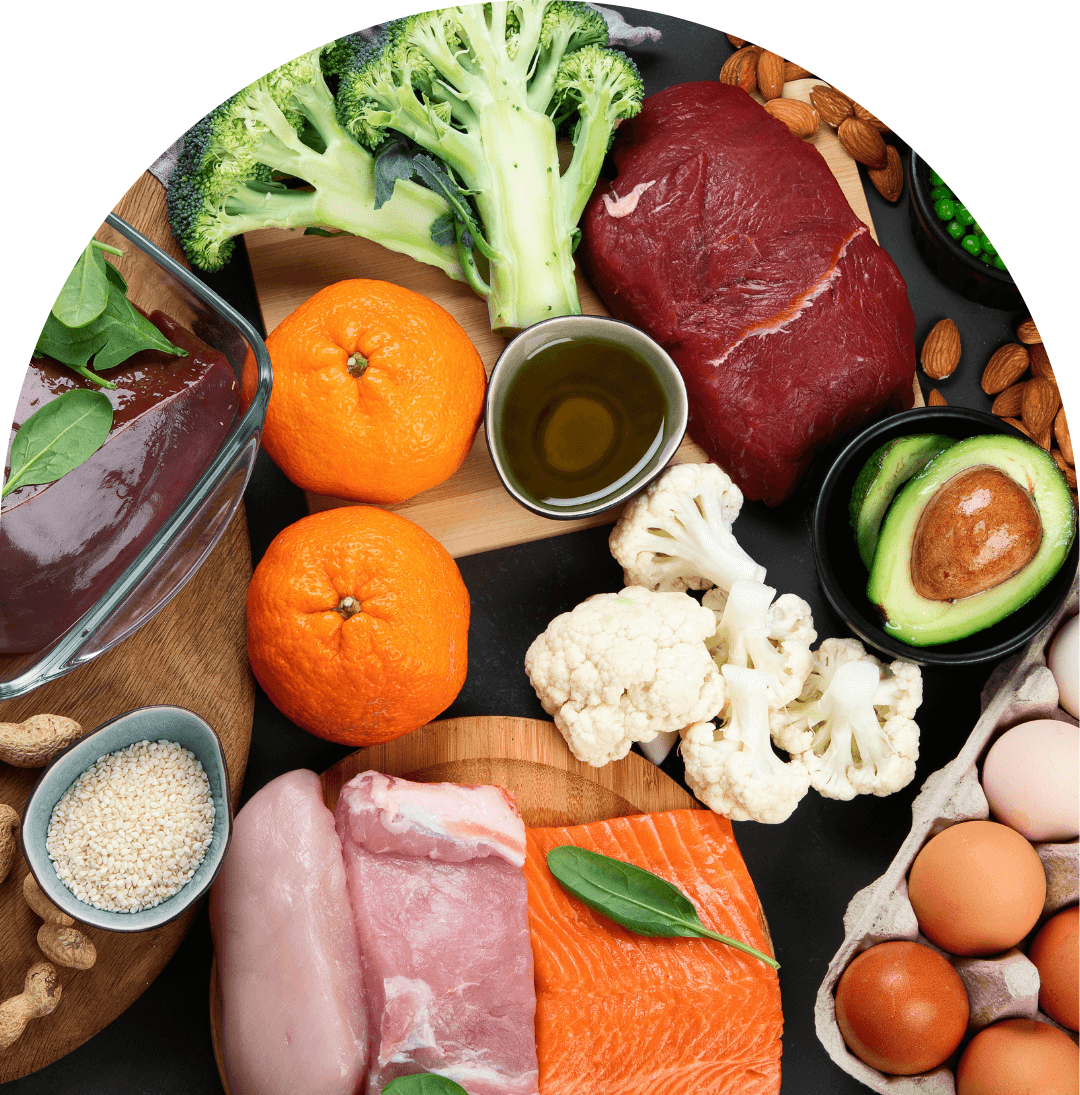
CoQ10
Coenzyme Q10 (CoQ10) is a key player in cellular energy production and mitochondrial function. In men, it has been associated with improved sperm motility. In women, CoQ10 supports energy-demanding reproductive tissues and healthy circulation, with research exploring its role in supporting egg quality and uterine readiness for implantation.
Food sources: Liver, beef, salmon, sardines, mackerel, poultry, spinach, broccoli, cauliflower, legumes
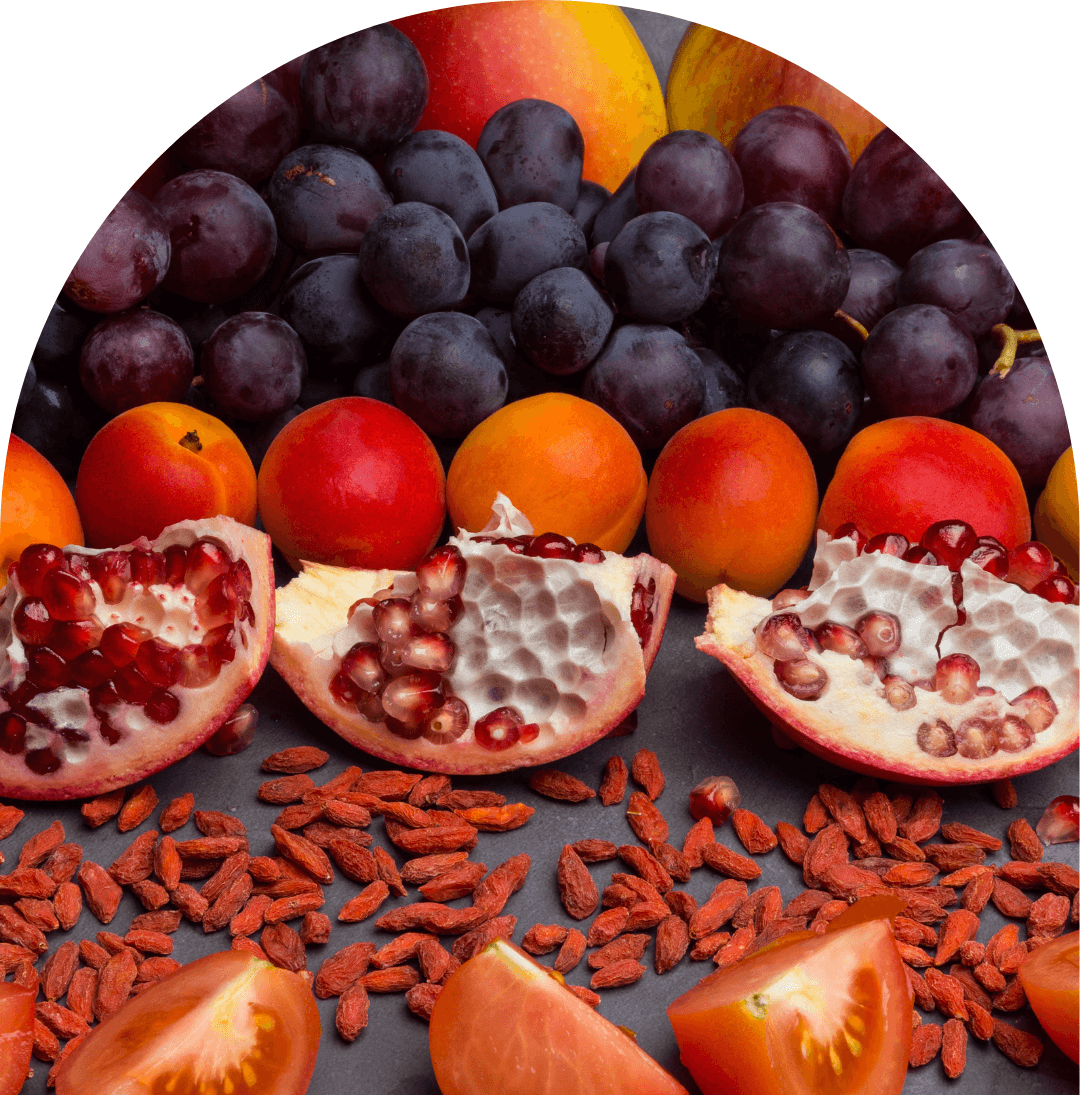
Resveratrol
Resveratrol, a plant compound found in grapes, has attracted interest for its antioxidant and cellular-protective properties. Emerging research is exploring its potential role in supporting egg quality, particularly in women over 35, where age-related changes in fertility are more common.
Food sources: Grapes, beetroot, blueberries, cranberries, cocoa, and pistachios


